- Home
- Simon Winchester
The Fracture Zone Page 2
The Fracture Zone Read online
Page 2
There was a railway track to the right, and small steam trains would chuff happily along the valley, letting off villagers at country stops that smelled of creosote and roses. Beside the tracks, kept in check by its steep banks, was the Lepenec River. It was all so very pretty—which made more shocking the sudden appearance, once we rounded a bend as we were coming out of the canyon, of a grim-looking factory, all chimneys and gushing yellow smoke. The road signs declared this to be the settlement—there was a scattering of small red-roofed houses for the workers—of General Jankovic, and I remember thinking that he could have done precious little of note in battle if he had only this obscure and smoky cement factory named for him.
I remember all that, and, most of all, I remember the water meadow that I saw quite suddenly appear in front of me, spread out invitingly, an obvious place to stop, to rest, to take in the view. This, I thought as I slowed the car, was a magnificent place.
It was quite silent, except for the soughing of the wind through the cypress trees. The grass was tall and waved invitingly in the eddies of breeze. The stream chuckled and bubbled southward, and large brown hawks whirled in the thermals above us. I spread the map out on the ground to check just where we were: I identified the river as the Lepenec, and the hills behind us on the west as the Sar Range, and the much grander mountain chain off to the southwest—very high peaks indeed, some of them still capped with tired and dirty-looking snow—seemed to be the Rudoka Mountains, behind which lurked what was then Enver Hoxha’s wildly xenophobic and aberrantly Maoist state of Albania.
When planning this trip I had very much wanted to get permission to go there: After all, I said in my letter to the nearest embassy, it seemed that Albania’s internal situation was already changing, and there had been some softening of the Maoist line in Tirana that very year. (The Chinese, themselves changing at the time, and becoming more friendly with the West, were growing exasperated with their small cheerleading section in the Balkans, and were dropping them from their dance card. The warped ideals of “revolutionary self-sufficiency,” which the Albanians seemed to have copied directly from Kim II Sung’s monstrous Juche—his insanely xenophobic plan for socialist self-sufficiency—in North Korea, were now being tried out on the Albanian masses.)
My plea went unheard, or at least unanswered, and so the most I could hope for was the vicarious thrill of knowing that these hills formed the frontier, and that there must be impenetrable fences and guard dogs lining the summits. Besides, there were Albanians here in Old Serbia, and I could tell something of what the people were like—if indeed they were at all similar to those in the home country. I supposed only that the Kosovo Albanians were different in one respect—that they at least had the comforts of Islam: Behind those distant ranges were only the exactions of Enver Hoxha and his unvarying strangeness. I was not to learn for many years that the Kosovo Albanians had exactions of their own, every bit as trying.
That day, as I scanned the horizons, it seemed that Albania was the only foreign state in evidence: Ahead, for another two hundred miles or more, ran the vastness of Yugoslavia. Only the scattering of softly gnarled old olive trees gave a clue to the fact that Greece lay beyond and far away. There was no marking here, no fence, no line on the road, no customs post or police checkpoint, to suggest that this mountain pass and the meadow at its end owed their significance to anything more than their being so pretty a place. We stayed for half an hour or so: I seem to recall we got out a tartan blanket and had our lunch beside the river. But my son tells me I was mistaken, and says he doesn’t remember the field at all.
We pressed on: That night we spent in the southern Yugoslavian town of Skopje, and we crossed the old Turkish bridge and watched the old men smoking pensively as they gazed down into the river. We saw the ruins from the earthquake that had ruined the city in 1963. We drank sweet coffee and ate kebabs. And then we took off, emerging from behind the Iron Curtain, and headed for Thessaloníki and Alexandropolis, then for Istanbul and, by ferry in those days (the two huge suspension bridges had not then been built), we lurched across the Bosporus into Asia. After another two weeks, by way of Tabriz and Tehran, Herat and Kandahar, and the Khyber and Peshawar and the frontier at Wagah, we were in India. The troubles in India were wild and manifest, too, and for years the Balkans faded into our collective memories. No one ever said: “Remember the man who filled up the car in Pec?” or, “Remember the field by that cement factory called General Jankovic?”—because the Balkans were peaceful in those times, and we had no compelling reason to think of them.
But twenty-two years later I was to come back quite unexpectedly, and under decidedly different circumstances. Whatever vague suggestions of misery and hatred may have remained as wisps of memory from that first journey were impossibly and unimaginably compounded on the second—and never more so than when I saw that water meadow again, with a gasp of realization. It was all so terribly different a situation, the worst one could imagine, when I rounded a curve in a road and said to my companions, “My God! I’ve been here once before!”
It was late March 1999, and I had just been on a peculiar journey in Ireland. I had been summoned back from the United States by lawyers for the Bloody Sunday Inquiry, which had been reopened by the British government in tacit recognition that there had been shortcomings in the earlier investigation into killings by soldiers of the British army’s Parachute Regiment on the streets of Londonderry in 1971. It was when I was leaving that one of lawyers with whom I walked through the Bogside on that showery spring afternoon made one of those isn’t-it-a-small-world remarks, whose significance I wouldn’t appreciate for a few more days: Did I realize, he asked, that the young captain who at the time of the tragedy been the adjutant of the First Battalion—and who would be, as would I, a witness at the public inquiry—was now a lieutenant general, and was in command of the NATO rapid-reaction force then waiting on the borders of Kosovo? (The Ram-bouillet Peace Conference on Kosovo had just ended; Milosevic and his Belgrade government had just rejected its proposals, and talk of war was in the air.) Mike Jackson, he said. Sir Michael Jackson, in fact.
I said yes, I had known Mike all those years ago: We always used to joke about his name—not least since he, unlike the pretty singer, had a most spectacularly craggy and weatherbeaten face and was in no imaginable way like his peculiar namesake. What a shame, I said; what a pity that I had no plans to go to Kosovo, and that I was going home to New York in a day or so. It would have been good to see him again.
I should have known better. The life of a foreign correspondent can be a confusion of caprices, and three days later I found myself in Mike Jackson’s helicopter, scudding through the unlit nighttime skies of Macedonia a mile south of the Kosovo border.
A newspaper editor had found me in Ireland, and had wondered, in that polite and oh-so-British way, whether instead of rushing back to America, I might like to pop over to Macedonia, as he put it, just for a day or so. The NATO High Command had just given the unprecedented order to begin bombing Slobodan Milosevic into submission, and the warplanes had begun to attack Belgrade. There were reports that, in part as a consequence of the bombing, and of the Kosovo Serbs’ reaction to it, uncontrollable numbers of refugees were beginning to flood out of the province, and in particular into Macedonia, a country I wasn’t too sure even existed. Might I like to go down, take a look, and write a piece for the Sunday paper?
The editor was persuasive, though in truth he didn’t have to be: This was by all accounts a tremendous story, a tragedy of historic dimensions that even without a commission I would have given my eyeteeth to see. I called a fast motorcycle taxi service* and zoomed over to Heathrow: Six hours later (I had to fly by way of Thessaloníki, take a taxi to the Macedonian frontier,† and then—having penetrated the fastness of what still had a slight if rather rusted feel of Iron Curtain about it—another taxi farther north) I was promptly in the Macedonian capital of Skopje, and an hour later still had telephoned Mike Jackson to ask if he mi
ght remember me from all those years ago in Ireland. Evidently he hadn’t forgotten, but he was in no-nonsense mood. “Those bloody lawyers been onto you, too?” was the first thing he said. “Come and have a whiskey—and then let’s go for a ride.”
His pilots were wearing night-vision goggles, and we were talked down by ground controllers using tiny infrared needle lanterns called Fireflies. We settled down in the pitch dark of a parking lot behind a warehouse. A posse of sentries with machine guns and wearing Kevlar helmets rushed us across to a tent where, under the low glow of red lights, a clutch of colonels and majors were poring over a sheaf of large-scale maps. Whatever was going on, there was a crackling tension in the air, the feeling that something dire was happening, or was about to.
The business in the tents turned out to be—or seemed at first to be—quite unremarkably mundane. It was about chickens. How many, one colonel asked, were available? How quickly, interrupted the general, could they be brought here, to this very parking lot, a mile from the Kosovo border, to a village that, if it appeared on maps at all, was called Blace? Were the chickens whole or in parts? Were they boned or otherwise? Frozen or fresh? Were any of them halal?
It was that last question—an inquiry by a British army officer as to whether any of a supply of chickens had been prepared according to the rites of Islam, with the hapless birds’ heads turned at least in the general direction of Mecca as the slaughtering blades bore down—that made me realize: This was a planning meeting to get food to the refugees. Refugees who, if they were the expected Albanians from Kosovo, were of course almost certainly by and large Muslim. I now remembered from twenty years ago the men in their thimble hats, the women in veils, and the minarets, the minarets. Now that I was clear about the soldiers’ business I broke into the conversation: Were there that many refugees? Was it that bad a crisis?
The officers, Mike Jackson included, looked across at me silently, their leathery faces weary, grim, and set. Then the general spoke. “You’ve never seen anything like it, old man,” he said quietly. “You get up to the border at first light. You’ll never forget what you see. I guarantee it.”
I heard them first—a huge collective murmur that rolled from somewhere up close ahead. The road from Skopje ran north along a shallow river valley, and the driver remarked that the low green hills being limned by early sunlight on my left were in Yugoslav territory, and the dark-uniformed men we could see patrolling them were MUPs, Serbs, Yugoslav Special Police, and were to be avoided at all costs. But however unpleasant the prospect of ever encountering such men—and I wasn’t to know then how close I would come to them in so short a while—it was the noise that most astonished me: a deep and muffled roaring that, as we came closer to its source, separated into comprehensible constituent parts.
There were cries, some of anger, some of pain, some of utter misery. There was conversation, some urgent, some idle, some peppered with argument, with disagreement and shouting. There were barked orders, dismissive responses. There was sobbing, and wailing, and the hum of prayer, and as alto continuo, the electric wailings of thousands of unfed, unwashed children. All this vast and terrifying sound was clear from a hundred yards away, while budding trees and yellow gorse thickets and ridges of limestone kept me from seeing whoever, whatever, was making it. And then the road climbed a few more feet, the gorse thinned out, and in an instant the extent of this terrible business was at last in sight.
There was a wide field, the size of a large county cricket ground or a baseball field, lined with trees and hemmed in by a river and a railway track on the far side, and this road on its levee on the other. And on the field, cramming every square inch of its muddy grass, was what looked at first like a surreal infestation of insects, like a plague of giant locusts, a shifting, pulsating, ululating mass of the most pathetic European people I think I had ever seen.
I stood and watched, transfixed, for an hour or more, shivering in the early morning cold—though not shivering half so much as these people, who had had no benefit of sleep or warmth or food to prepare them. Macedonian police, ugly men in dark blue uniforms and with guns, reinforced after a while with Special Forces teams, their men in helmets and with clubs and gas guns, ringed the ragged edges of the mob. They were there to keep the Albanians from reaching the road and making their way down into the city. They didn’t seem to mind too much when I went down into the sea of liquid mud and worse, to see firsthand some definable figures from this Bosch-like scene of mass misery.
A score of small and wretched European tragedies could be seen with any glance.
There was a young man, nineteen or so, I’d guess, clearly from his face quite mentally ill, gibbering, drooling, and he was being led by two ragged friends down a muddy slope toward a communal bucket of drinking water. He had no shoes or socks, and his feet were bleeding from the long walk of the night, and yet now his friends had mistakenly led him over a patch of wire-hard brambles, and he was crying, shrieking with the pain of the needles in his soles.
More horribly still, there was a woman, newly miscarried, who was sitting, weeping in a mess of blood, the remains of a dead infant in her arms. Other women, villagers, friends, relations—I’ll never know—were trying to drag the stillborn bundle away, but she whimpered wildly, as if she was wanting to cling to one part of herself, one small token of security that she insanely believed in, through a fog, when everything else around her seemed to be going mad.
Then, the image that has remained most firmly in my mind, there was the old man, wizened, hunched, arthritic, who was being wheeled by a younger man, his son, probably, along the railway track. Each time the flat and worn iron wheel of the barrow hit a tie, so the man’s insensate form was jolted, hard, and his legs and arms flailed wildly, like those of a flung corpse. But still, stubbornly, he kept his toothless jaw clenched tight, bracing his head for the next bump, the next crash, the next assault on his dignity and peace—and, no doubt, to ensure that he did not once cry out. All through it he remained mute, cringing against each battering, like a silent torture victim. He must have suffered so for hours, as his boy brought him down from Kosovo along the railway, though in a manner meant for the dead, and in a conveyance meant for dirt.
There were beautiful faces in the crowd as well. There were handsome men, it is true; but I was more drawn to some of the Albanian women, whose images might have been taken from a canvas by Modigliani or Botticelli—long intelligent faces, high cheekbones, olive skin, aquiline noses, bright eyes. I looked over the shoulder of a photographer who was sitting on the hillside and transmitting pictures—this being 1999 he had a digital camera, a small computer, a cellular telephone (there was no truck with film or developing tanks, and no wire connections)—to London. He showed me one picture of a young woman of staggering beauty, her arms around her two small fair-haired boys. Her eyes were bright and shining, despite the long night, and the longer march from whatever village had been chosen for what the Serbs had called the cis cenje terena—the cleansing, the ridding of the vermin, like this young family, that contaminated hallowed ground. It all seemed so monstrously wrong: that this young woman, who in other circumstances could have been a poster child for motherhood and goodness and sheer human loveliness, should in these strange and feral Balkan circumstances have been forced from her home at gunpoint, made to walk through nights and days of terror, and end up here hopeless and homeless and friendless, in an alien land, on this forlorn and infamous Golgotha, this field of bones—a place where already a dozen people, including the bloodied stillborn child I had seen, had died in the hours since it had first been settled.
I feel no shame in confessing that it was as much as anything the evident Europeanness of the thousands on this field that struck me first: for while I have in a life of wandering just like this seen many thousands of refugees and displaced and dispossessed unfortunates in Africa and Cambodia and Bengal and Java and elsewhere, and have felt properly sorry and ashamed that such calamities should befall them, my instin
cts on that April day at Blace Camp were very much those of a European man, looking at men and women and children who could very well, from the simple fact of their appearance, be cousins or friends or acquaintances, in a way that no one in the refugee fields in Bengal or the Congo could ever really have been.
And so my visceral reaction was simply that: That this was Europe, this was now, and here we were at the close of the most civilizing century we have known, and yet here before us was the diabolical, grotesque, bizarre sight of tens upon tens of thousands of terrified, dog-weary, ragged European people who were just like us, and who just a few short days before had been living out their lives more or less like us, yet who were now crammed insect-thick onto a carpet of squelching mud and litter and ordure and broken glass and dirt, while we climbed down from the kind of car in which they might have driven, after a breakfast of the kind that was customary for them to have as well, and watched and gaped and gawked down at them in uncomprehending horror and thought only, My God! This is too much. This is quite beyond belief.
Except I had one additional moment of revelation: My God! I’ve been here once before.
I recognized it in an instant, just at the moment when I strolled up to the Macedonian frontier post and was shooed away by policemen who were busy dealing with the endless streams still pouring past them. I had joined the incoming flood for a second or two, walking back southward, back along the way I had come, trying to make sympathetic conversation with the newcomers in the column—when suddenly, looking over at the hills where we had seen the MUP militiamen at dawn, I realized that I was on familiar ground.
There was a stream over on the right, surely. There were high and snow-lined Albanian hills ahead, surely. There should be, on the right, a water meadow of singular loveliness. And then it dawned on me: that field of wildflowers and bending grasses that had seemed so idyllic a stopping place all those years ago was the very one that was now filled with mud and dirt and misery, and peopled with this sorry infestation. My “field of dreams” was here, right here—but it had become, in twenty years, a charnel house.

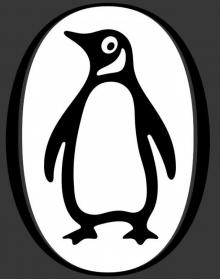 The Surgeon of Crowthorne
The Surgeon of Crowthorne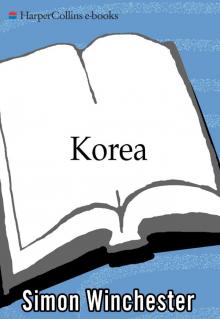 Korea: A Walk Through the Land of Miracles
Korea: A Walk Through the Land of Miracles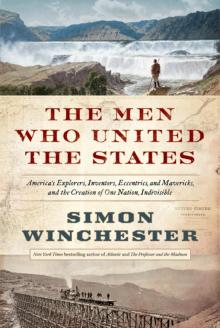 The Men Who United the States: America's Explorers
The Men Who United the States: America's Explorers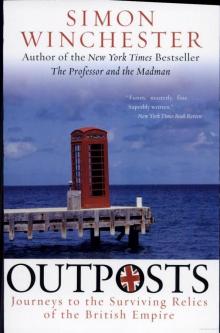 Outposts: Journeys to the Surviving Relics of the British Empire
Outposts: Journeys to the Surviving Relics of the British Empire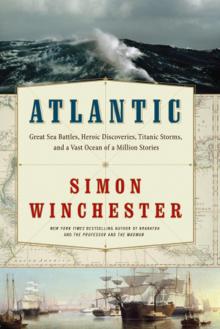 Atlantic: Great Sea Battles, Heroic Discoveries, Titanic Storms
Atlantic: Great Sea Battles, Heroic Discoveries, Titanic Storms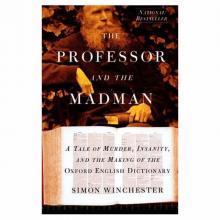 The Professor and the Madman: A Tale of Murder, Insanity
The Professor and the Madman: A Tale of Murder, Insanity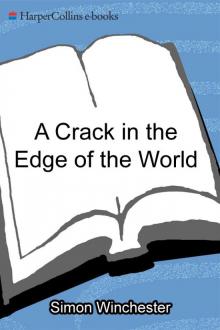 A Crack in the Edge of the World
A Crack in the Edge of the World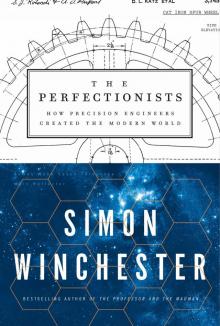 The Perfectionists: How Precision Engineers Created the Modern World
The Perfectionists: How Precision Engineers Created the Modern World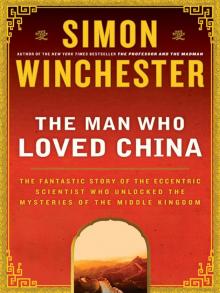 The Man Who Loved China: The Fantastic Story of the Eccentric Scientist
The Man Who Loved China: The Fantastic Story of the Eccentric Scientist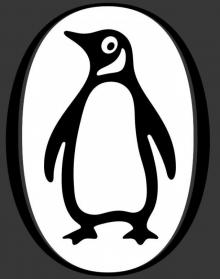 The River at the Center of the World: A Journey Up the Yangtze
The River at the Center of the World: A Journey Up the Yangtze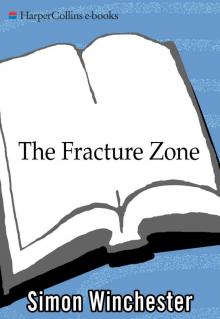 The Fracture Zone: My Return to the Balkans
The Fracture Zone: My Return to the Balkans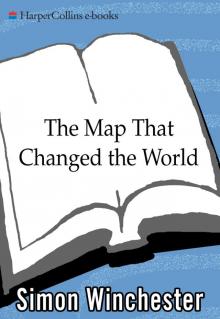 The Map That Changed the World
The Map That Changed the World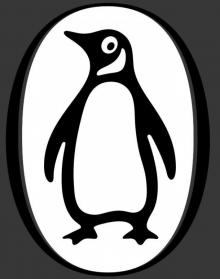 Krakatoa: The Day the World Exploded
Krakatoa: The Day the World Exploded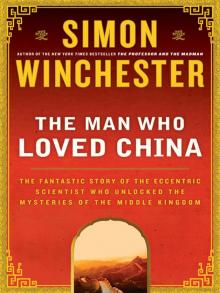 The Man Who Loved China
The Man Who Loved China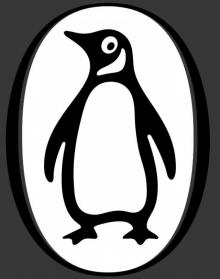 The River at the Centre of the World
The River at the Centre of the World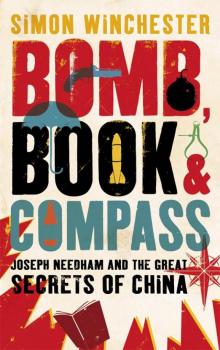 Bomb, Book and Compass
Bomb, Book and Compass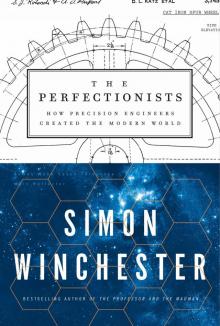 The Perfectionists
The Perfectionists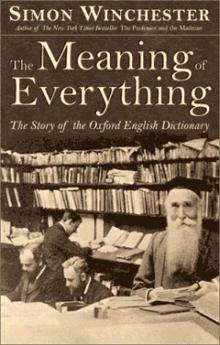 The Meaning of Everything
The Meaning of Everything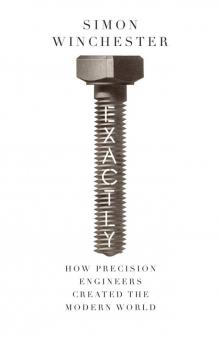 Exactly
Exactly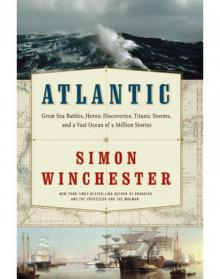 Atlantic
Atlantic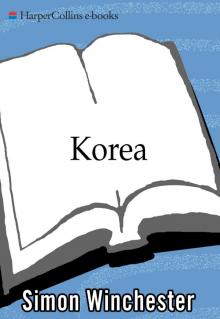 Korea
Korea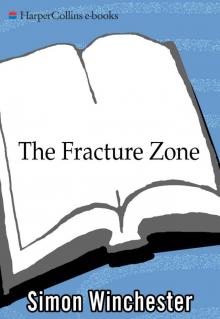 The Fracture Zone
The Fracture Zone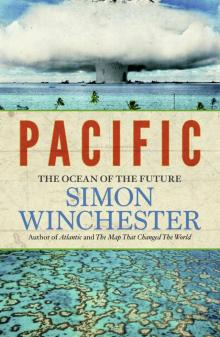 Pacific
Pacific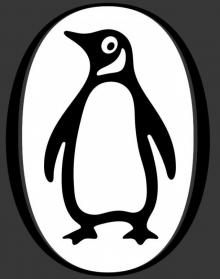 Krakatoa
Krakatoa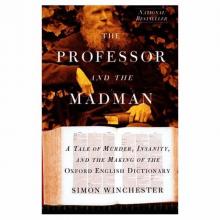 The Professor and the Madman
The Professor and the Madman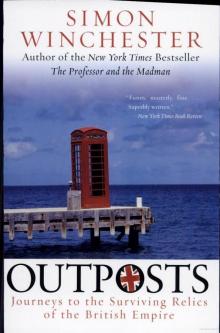 Outposts
Outposts